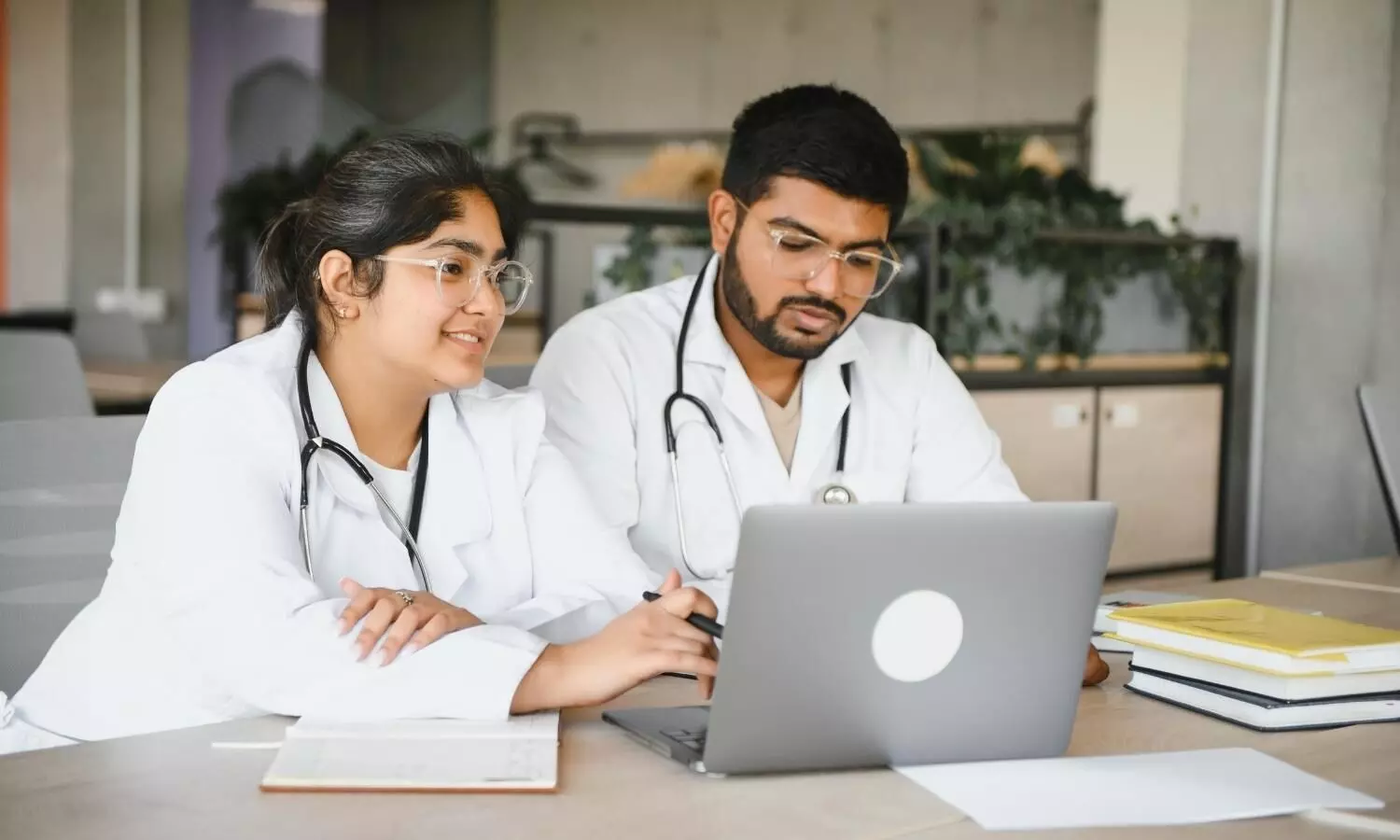Online Early Clinical Exposure Emerged as Practical Alternative for Medical Training During the Pandemic, Finds Research
- byDoctor News Daily Team
- 29 September, 2025
- 0 Comments
- 0 Mins

Mysuru: The implementation of online early clinical exposure (ECE) for medical undergraduates has emerged as a necessary and viable alternative during pandemic circumstances, as highlighted in a recent research article. The research, published in theIndian Journal of Medical Biochemistry, emphasized that online teaching methods offer an effective means to educate students and can function as a supplementary aid to conventional classroom lectures, especially during pandemic times. Traditional medical teaching in India largely relied on lectures and memorization, with limited focus on practical application. To bridge this gap, competency-based medical education (CBME) was introduced, aiming to develop practical skills alongside theoretical knowledge. The National Medical Commission (NMC) implemented CBME for undergraduates in 2020, incorporating methods such as group discussions, problem-based learning, self-directed study, and early clinical exposure (ECE). ECE gives students clinical experience from the start, helping them link theory to practice, build confidence, and develop professional identity. The COVID-19 pandemic, however, disrupted hands-on training, making online teaching the only alternative. “A structured online module like online ECE can bridge the gap between theoretical knowledge and practical application, helping medical students correlate concepts with real clinical scenarios, stay motivated, and retain complex information. This demonstrates that medical education can continue effectively even when physical access to clinical settings is limited,” the author of the study, Dr Akila Prashant, Professor & Head, Department of Biochemistry, Convener, Department of Medical Genetics, SS Medical College, Mysore, Karnataka, India, told ." To implement this, Dr. Shobha CR, Dr Prashant and colleagues conducted a study in the Department of Biochemistry at a private NMC-recognized medical school, where an online early clinical exposure (ECE) session was held on “Inborn Errors of Metabolism (IEM) and the Significance of Newborn Screening (NBS).” Students were provided information on prevalence, morbidity, mortality, significance of NBS, and available treatments, and engaged in discussions on four clinician-developed case scenarios. On the selection of IEM and NBS as topic, Dr Prashant explained, “IEMs, though individually rare, collectively represent a significant public health concern requiring early intervention. Newborn screening programs offer a practical example of linking clinical medicine with public health, making them ideal for early clinical exposure. The topic allows students to learn communication with parents, understand diagnostic pathways, and interpret biochemical reports—all well-suited for online teaching.” Out of 200 students, 175 attended the 4-hour online ECE session, which was conducted in smaller groups under faculty supervision. Their feedback was collected on a five-point Likert scale and analyzed. Among the 175 attendees, 152 students willingly participated in the questionnaire survey. The study led to the following findings: • Enhanced learning outcomes: The majority of students were able to correlate theoretical concepts with clinical case scenarios and expressed confidence in retaining this knowledge long-term. • Student engagement: Many students found case-based discussions and virtual lab demonstrations more effective than textbook learning, and they requested additional sessions of this type during lockdown. • Preference for in-person sessions: While students acknowledged the effectiveness of online ECE, a considerable proportion still expressed a preference for traditional onsite exposure once conditions permit. Dr Prashant added, “Our findings suggest that online ECE can enhance medical students’ understanding of newborn screening (NBS) and inborn errors of metabolism (IEM). Students learned to differentiate screening and confirmatory tests, interpret laboratory findings, and communicate effectively with parents. Such training helps build a future healthcare workforce capable of promoting public awareness, ensuring timely diagnosis, and managing screening programs efficiently—thereby reducing potential complications, morbidity, and mortality.” Reference: Ramachandra SC, Kempegowda SN, Shivashankar KK, et al. Role of Early Clinical Exposure in Medical Education: Effectiveness of Its Transition from Onsite to Online Sessions during the Pandemic. Indian J Med Biochem 2025;29(1):1–7.
Disclaimer: This website is designed for healthcare professionals and serves solely for informational purposes.
The content provided should not be interpreted as medical advice, diagnosis, treatment recommendations, prescriptions, or endorsements of specific medical practices. It is not a replacement for professional medical consultation or the expertise of a licensed healthcare provider.
Given the ever-evolving nature of medical science, we strive to keep our information accurate and up to date. However, we do not guarantee the completeness or accuracy of the content.
If you come across any inconsistencies, please reach out to us at
admin@doctornewsdaily.com.
We do not support or endorse medical opinions, treatments, or recommendations that contradict the advice of qualified healthcare professionals.
By using this website, you agree to our
Terms of Use,
Privacy Policy, and
Advertisement Policy.
For further details, please review our
Full Disclaimer.
Recent News
Air Pollution May Slow Infant Brain Development: S...
- 23 October, 2025
AI Outperforms Traditional Tools in Predicting Hea...
- 23 October, 2025
Nearly Half of Acute Pancreatitis Patients Develop...
- 23 October, 2025
Can Fat You Can’t See Put You at Risk for Stroke a...
- 23 October, 2025
Daily Newsletter
Get all the top stories from Blogs to keep track.


0 Comments
Post a comment
No comments yet. Be the first to comment!